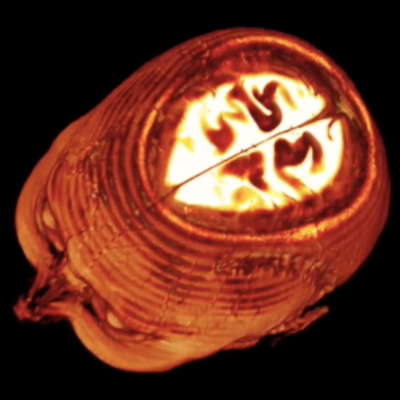 DISCUSSION: Composers Daniel Schorno and John Dante Prevedini discuss creativity, innovation and re-invention with Maria Nockin, Mary Mogil, Giuseppe Pennisi and Roderic Dunnett.
DISCUSSION: Composers Daniel Schorno and John Dante Prevedini discuss creativity, innovation and re-invention with Maria Nockin, Mary Mogil, Giuseppe Pennisi and Roderic Dunnett.
 VIDEO PODCAST: Slava Ukraini! - recorded on the day Europe woke up to the news that Vladimir Putin's Russian forces had invaded Ukraine. Also features Caitríona O'Leary and Eric Fraad discussing their new film Island of Saints, and pays tribute to Joseph Horovitz, Malcolm Troup and Maria Nockin.
VIDEO PODCAST: Slava Ukraini! - recorded on the day Europe woke up to the news that Vladimir Putin's Russian forces had invaded Ukraine. Also features Caitríona O'Leary and Eric Fraad discussing their new film Island of Saints, and pays tribute to Joseph Horovitz, Malcolm Troup and Maria Nockin.
- Coriún Aharonián
- Herefordshire
- Witold Lutosławski
- Charles Villiers Stanford
- Jeffrey Tate
- Centaur Records
- Huang Zhun
- Drake University
A FRESH, DIFFERENT VIEW

RODERIC DUNNETT previews Adrian Partington's 2023 Gloucester Three Choirs Festival
Adrian Partington certainly has a unique Three Choirs Festival pedigree. His first involvement, he recalls, was in 1969, when he was a boy chorister at Worcester Cathedral under the miracle worker Christopher Robinson. He later returned as an incredibly proficient sub-organist of Worcester Cathedral for a decade under the experienced leadership of Donald Hunt.
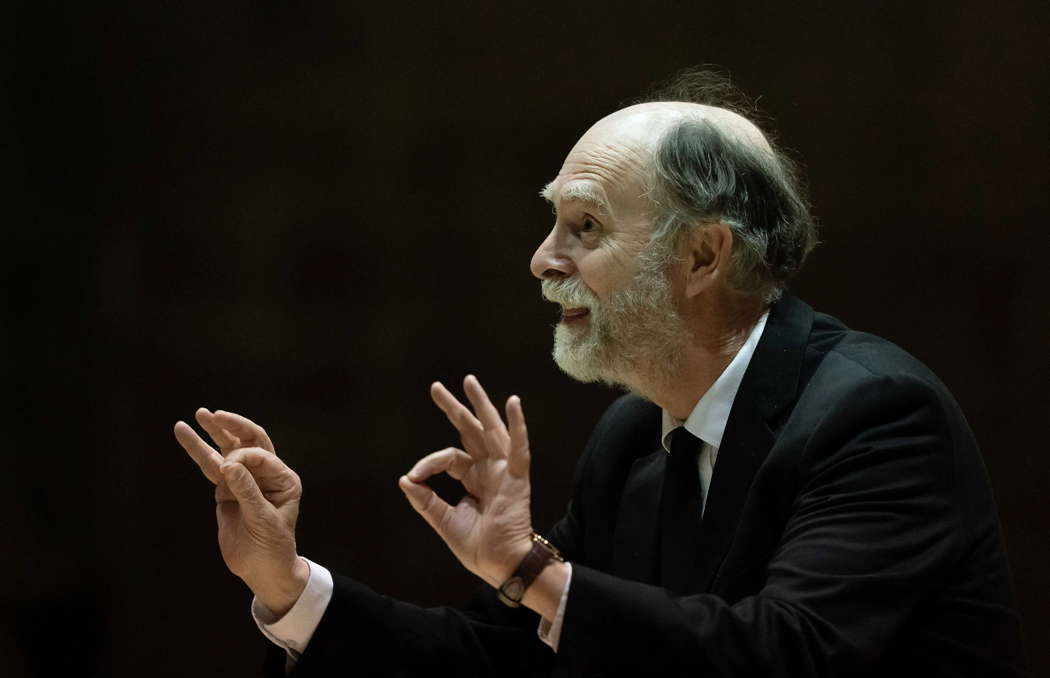
Adrian Partington. Photo © Michael Whitefoot
Following a period at the Royal College of Music, where he came under the spell of his teacher, Herbert Howells, his path led him on to St George's Chapel, Windsor where, as Organ Scholar for a year, he acquired as his wise mentor yet again Christopher Robinson.
But his most important connection to the Three Choirs continues to this day. In 2023 he is Artistic Director for the fifth time it has been held under his guidance at Gloucester.
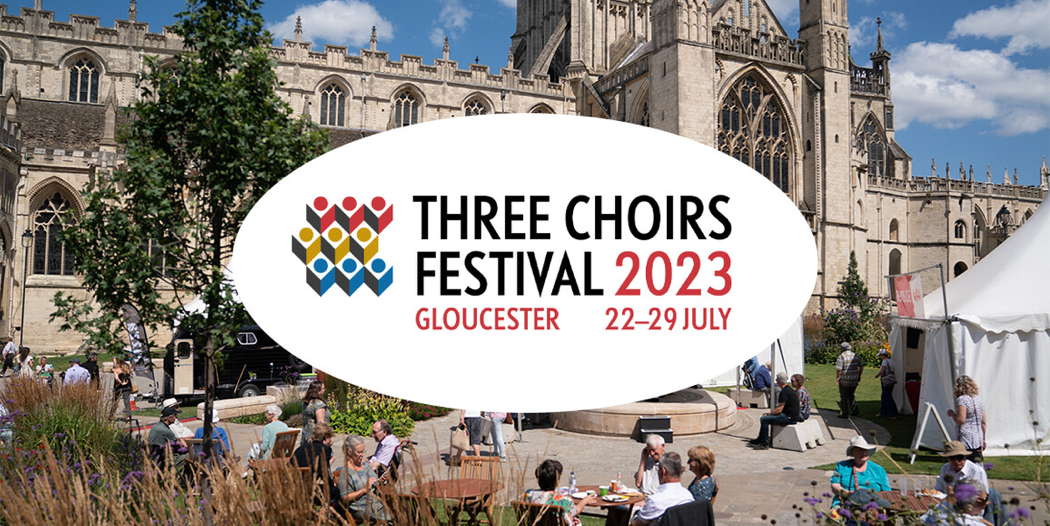
Online publicity for the Gloucester Three Choirs Festival, 22-29 July 2023.
Background photo © Michael Whitefoot
True, it is difficult to remember a festival at any of the three venues that has lacked in brilliance, finesse and imagination, thanks both to the high quality and masterly preparation of the triple chorus, and to the excellence - how could it be less? - of the Philharmonia Orchestra.
A permanent residency of, some would say, London's and the UK's finest orchestra (even if the London Symphony Orchestra and BBC Symphony Orchestra are obviously rivals to that title), championed by Paul Hedley when he took over the Three Choirs as its first permanent, full time overall supervisor, and secured by an inspired arrangement with the Philharmonia's long term supremo David Whelton, when the overall Three Choirs Committee boldly risked accepting a higher fee than it might, proved a perfect match. How right their decision has proved. That continuity has yielded a tremendously successful partnership and plainly taken numerous evening concerts to even higher levels.
One special bonus emerging from the connexion is that the Philharmonia's fabulous long term concert master, Tihamér Zsolt-Visontay, will be soloist in the Elgar Violin Concerto on the opening night (Saturday 22 July 2023): a top quality German-Hungarian taking on Elgar in this way - an exciting prospect.
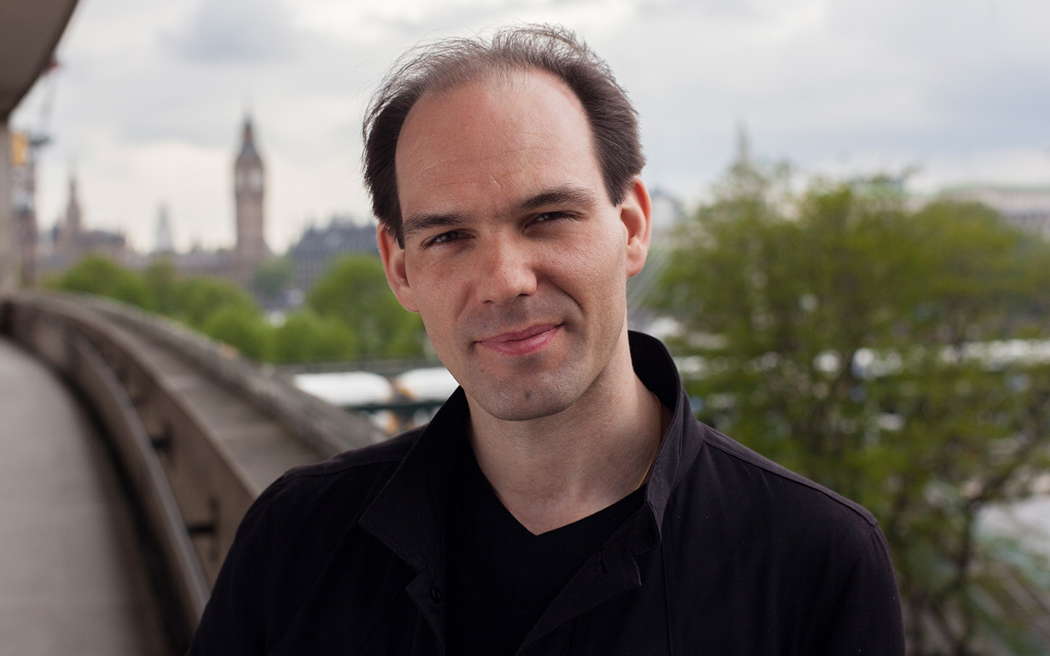
Zsolt Tihamér-Visontay, Leader of the Philharmonia and soloist in Elgar's Violin Concerto. Photo © 2013 Guy Wigmore
One thinks of the amazing way Germany took up Gerontius in translation at Mainz's Lower Rhine Festival scarcely two years after its Birmingham premiere. But the fact that he won the Louis (Ludwig) Spohr International Violin Competition speaks reams, for Spohr (1784-1859) was recognised in his lifetime, along with Paganini of course (1782-1840) as out and away the finest violinist of his day.
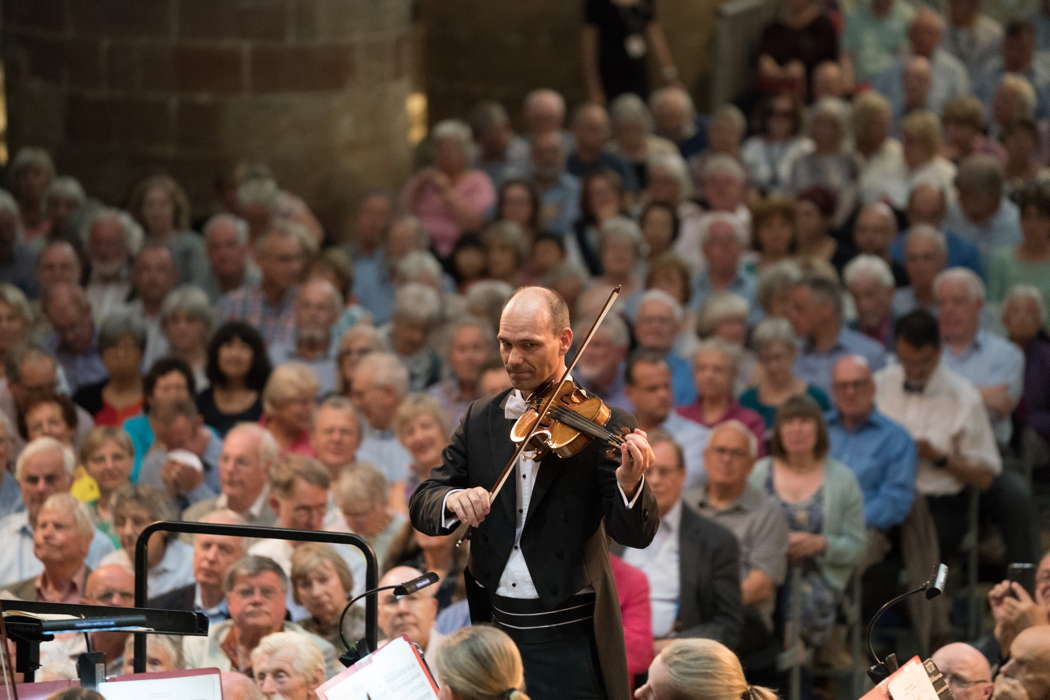
Zsolt Tihamér-Visontay at Gloucester Cathedral during the Three Choirs Festival. Photo © 2019 Michael Whitefoot
Of the repertoire, more shortly. But the fact that Adrian Partington, who will as usual share the direction with the other two Musical Directors, the assured duo of Hereford's Geraint Bowen and Worcester's Sam Hudson, had previously been in charge of the then newish City of Birmingham Orchestra's Youth arm, in Simon Rattle's time, has led him to place added emphasis on a number of key areas - not least, as he explains, drawing in a wide spectrum of amateur local performers. One should highly recommend the Three Choirs Festival Youth Choir, which he founded in Gloucester and which has since taken part in a wealth of concerts during the Festival. The quality that Partington drew from them right from the start was instantly exciting. And they cater for young singers who are in essence not members (though they might be former members) of any of the three cathedral choirs.
This year under Geraint Bowen the Youth Choir will sing the second choral Evensong featuring three sensational Gloucester composers - Sumsion, Brewer and S S Wesley - the day before they play a part, alongside young members of much-praised British Youth Opera, in possibly the major highlight of the week: a Vaughan Williams opera.
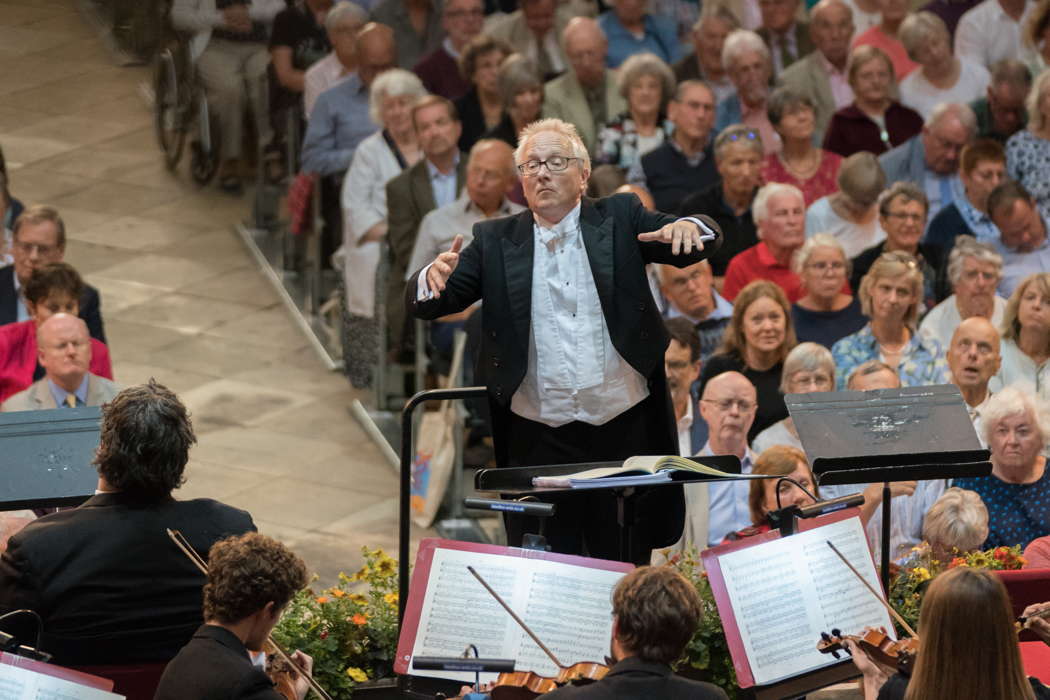
Geraint Bowen. Photo © 2019 Michael Whitefoot
Outreach has become increasingly a welcome element of the Festival. Sometimes the final evening has hosted a galvanising Community choir event, here and there fronted by empathetic soloists, notably the sensational Njabulo Madlala, from South Africa. Indeed 'involvement of local people' has become not just an ancillary, but a significant part of the week's events. As a special bonus, the Festival draws in the Cheltenham Youth Choir and Children's Chorus - one way or another, involving some three hundred youngsters from nearly a dozen schools - in a fifteen-minute premiere. Singers from local schools are also included in The Happy Princess, an enchanting opera based on Oscar Wilde by composer Paul Fincham and librettist Jessica Duchen, which was a roaring success when premiered in 2019 at Garsington Opera. (Soon after it was followed by another of Wilde's touching children's stories, The Selfish Giant.)
In fact for Gloucester's wider community this year Partington has come up with an enticing opener outside the Cathedral precincts; one might say novelty: a triple public outing, ie with three groups, including the Nethra Academy of Performing Arts, processing through the city streets; then meeting up - a band is one of them - the whole march a way of supplying a scrumptious experience for people around the city. If you fancy it, add a Folk Singing Workshop on the Thursday afternoon. It should be both fun and enlightening.
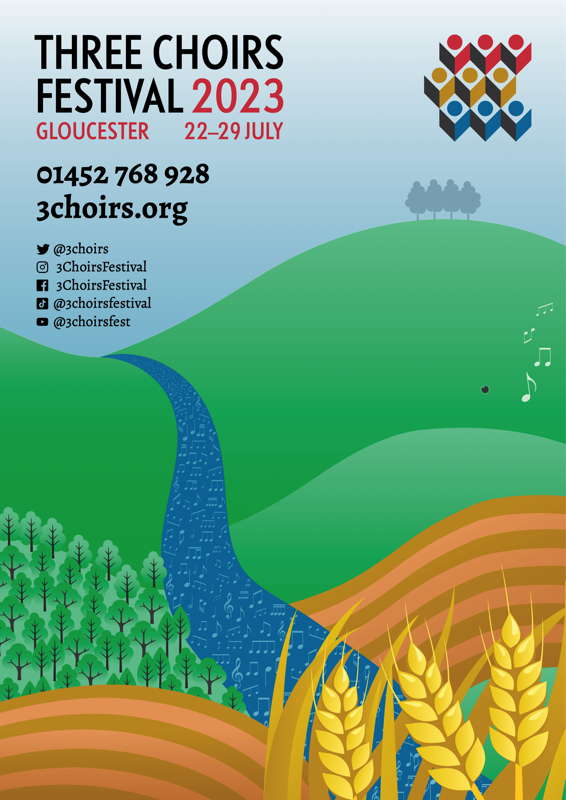
Poster for the 2023 Gloucester Three Choirs Festival
Summer 2023 can be described as the conclusion of the anniversary season of Ralph Vaughan Williams (1872-1958). Like other choral societies the country over, and following on from all these three individual Choral Societies, the Festival has this year seized on a rich wealth of his music.
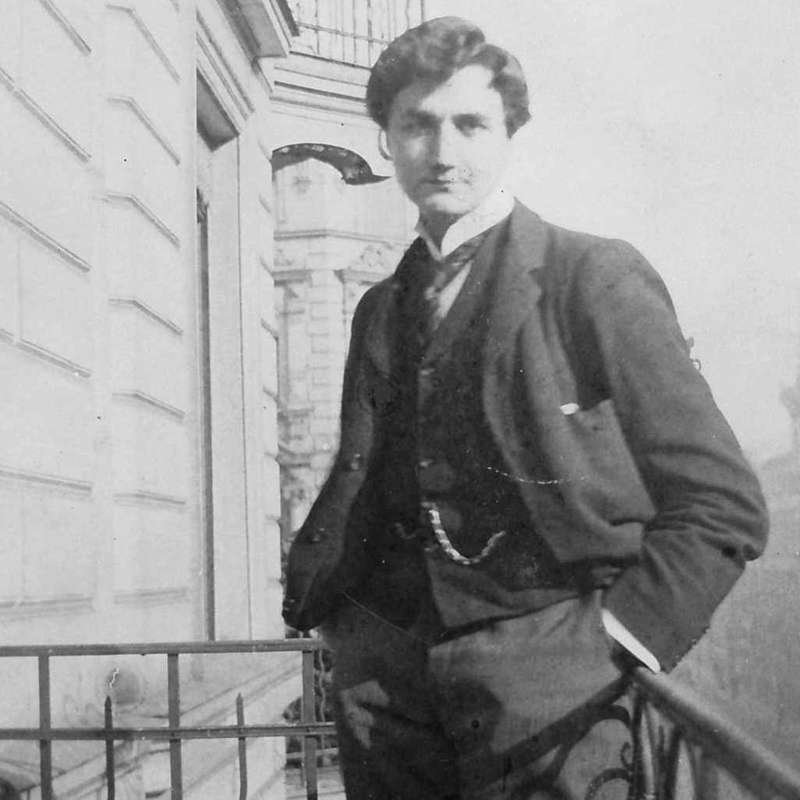
Ralph Vaughan Williams in 1898
But Partington has selected something which puts The Three Choirs right at the top of the tree. Vaughan Williams' opera The Pilgrim's Progress - drawing upon John Bunyan's epic Christian allegory (1660, or 1664, to 1677, published in 1678) - is virtually never done. Neither, as it happens, are his other operas - Sir John in Love, based largely on Shakespeare's The Merry Wives of Windsor and Riders to the Sea (Irish playwright John Millington Synge - most famed for Playboy of the Western World). The first was recently seen staged at Opera Holland Park - very successfully, the latter a few years ago at the Buxton Festival, paired with a (rare) similar length opera by Holst. There are actually two more Vaughan Williams one act operas.
But the Gloucester performance of The Pilgrim's Progress - whose composition Vaughan Williams mused over for some four decades: it was not premiered, at Covent Garden, till 1951 - should prove so sensational, that any of the audience who have not seen or heard it will be bowled over by its vivid, even in one case wicked, sneering choruses, striking orchestration, its awesome, threatening dark Angel 'Apollyon', whom Pilgrim bravely outfaces, and not least its haunting trumpet solos (indeed the whole brass section). One of my most scintillating experiences was hearing and seeing a live performance by the Royal Northern College of Music in Manchester, the vast choir and orchestra of students directed with tremendous aplomb and saucy vigour by Joseph Ward. It included soloists who have gone on to prominence: not least, Alice Coote, Henry Waddington, Stephen Wallace and Jeffrey Lloyd-Roberts.
The Royal Opera House chorus and orchestra recorded The Pilgrim's Progress under Richard Hickox, for Chandos, with Gerald Finley highly praised in the title role (CHAN 9625); but before that, Sir Adrian Boult recorded it for EMI, starring one of England's three top baritones, John Noble. Interestingly, Joseph Ward himself sang on that Boult recording, EMI 7642122. The Royal Northern College of Music double disc, RNCM PP1, is perhaps not available now except by browsing the internet.
Partington has elected for Aberdeen University, the Royal Northern College of Music and now the Royal Conservatoire of Scotland's much-lauded baritone Ross Cumming, who has studied with Roderick Williams, a Three Choirs favourite who himself performed the role to wide admiration at Sadler's Wells - original home to English National Opera - which as it happens plans to open a new venue next year in the East End of London's Olympic Park.
More Vaughan Williams? The double Mass in G minor has prominence in the Sunday's traditional Festival Eucharist. There's his six section Flos Campi, with viola, chamber ensemble and, here unusually, with a large choir - the massive Three Choirs Festival Chorus, central to the whole week, who surface in the same day's evening concert.
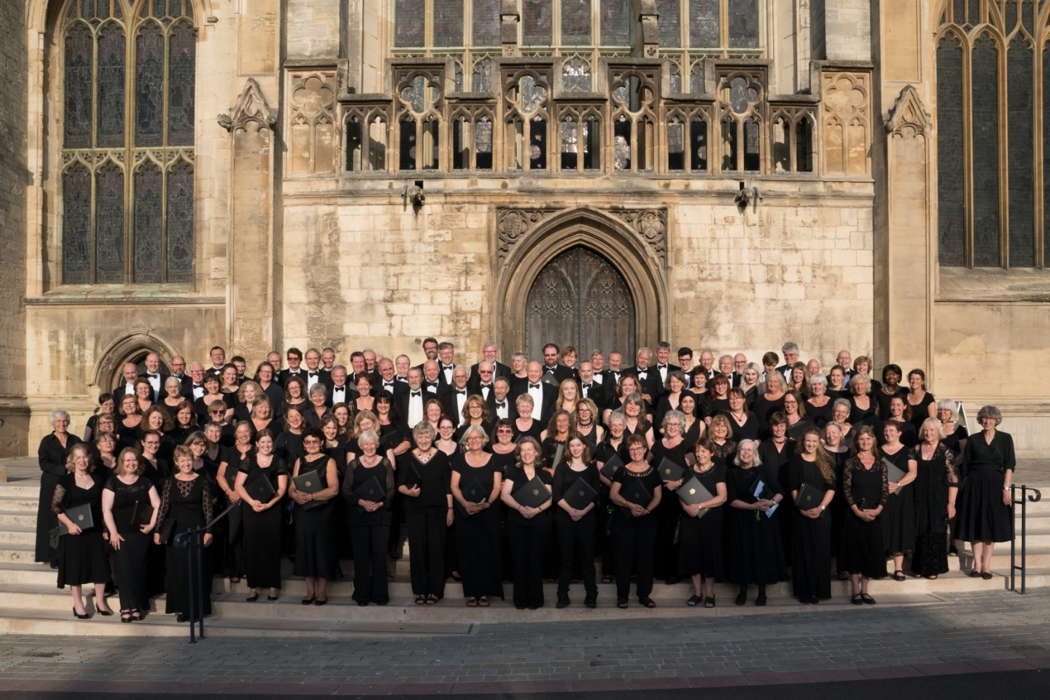
The Three Choirs Festival Chorus. Photo © 2019 Michael Whitefoot
The texts alluded to are all from the Biblical Song of Songs, or Song of Solomon. Two talks explore RVW's music; a rarity, his Suite for (again) viola and piano, joins others' music at Holy Trinity Church. His Five Mystical Songs and Fantasia on a Theme by Thomas Tallis, the latter first heard at the Gloucester Three Choirs in 1910, form part of Friday's main event, an important happening given life and atmosphere by Worcester's Samuel Hudson.
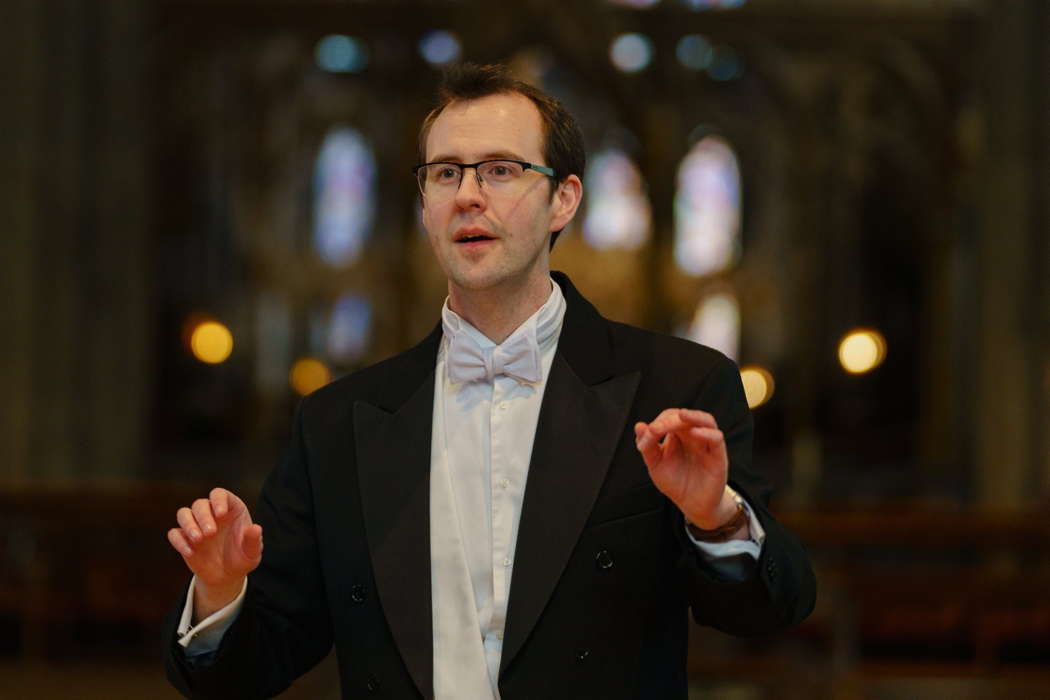
Samuel Hudson. Photo © Michael Whitefoot
Vaughan Williams' English Folk Song Suite (for small ensemble) follows the next day.
Not surprisingly Roderick Williams is back for both the first two nights at Gloucester, including RVW's oratorio or cantata Sancta Civitas, and new works by Ronald Corp (Hail and Farewell) - Corp is one of London's most celebrated and creative choral directors - and Gavin Higgins (his more extensive The Faerie Bride).
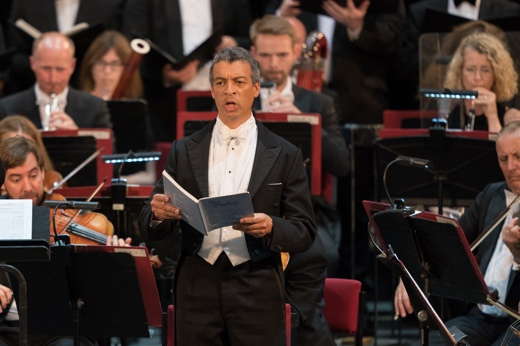
Roderick Williams. Photo © Michael Whitefoot
Forty this year, Higgins, noted for his ballets and for three BBC Proms orchestral commissions (one of which starred at the Proms' Last Night fest), and not least an opera for the Royal Opera House, was born in Gloucestershire's Forest of Dean, going on to study at Chetham's School in Manchester, and then, in the same city, the Royal Northern College of Music. His latest accolade was a Royal Philharmonic (RPS) award just this year.
Talking of commissions leads on to the substantial list of such premieres. The Three Choirs has introduced, over many years, a good many of which have gone on to become staples of the repertoire. This year's crop makes its mark in the very first evening concert, a short work - but then her short pieces are always telling and wrapped in detail - by the Jamaican-British Eleanor Alberga - one of a large clutch of female composers and performers carefully selected here.
Elgar is of course obligatory. But instead of going for The Dream of Gerontius, Partington and the chorus will take on The Apostles, a work of mighty impact, with the bass John Savournin singing the guilt-ridden, yet moving, pre-suicide aria of Judas, one of the most famous movements in the oratorio. I believe the Three Choirs programmed Caractacus a few years back - a bold, original undertaking; and one remembers Roy Massey's galvanising performance at Hereford of The Light of Life, or Lux Christi, likewise a work from the 1890s before Elgar's fame blossomed. Indeed, the extensive Christian saga King Olaf has rightly featured. These are all fine works, elsewhere ridiculously ignored - although not here.
Partington has been involved with a lot of creative, unusual repertoire both in his second Birmingham role, as the City of Birmingham Symphony Orchestra's Associate Chorus Master, and as Chorus Master (still) of the BBC National Orchestra of Wales. All of this points to his immense experience when handling the huge Three Choirs Festival Chorus, and indeed in approaching repertoire that is fresh to the choir and orchestra and quite possibly to him as well. Often enough he would find himself in not just Swansea or Cardiff, but Scotland or London as well.
Whether some of the premieres result from composers posting him copies of their music or not - perhaps only rarely, for he will have his own wide-ranging ideas - they are numerous. Perhaps gratifyingly so, for they are an indication of the Three Choirs' prominence. Not just in the evening concerts, but in some of the chamber music during the day. Composers' names that crop up there, mostly hitherto unknown to me, are Matthew Clark, John Merrick, Jennifer Watson, the widely acclaimed Joseph Phibbs, not quite fifty, Liz Lane; and although not premieres, significant works by Ronald Corp, Francis Pott - a large oratorio - and others.
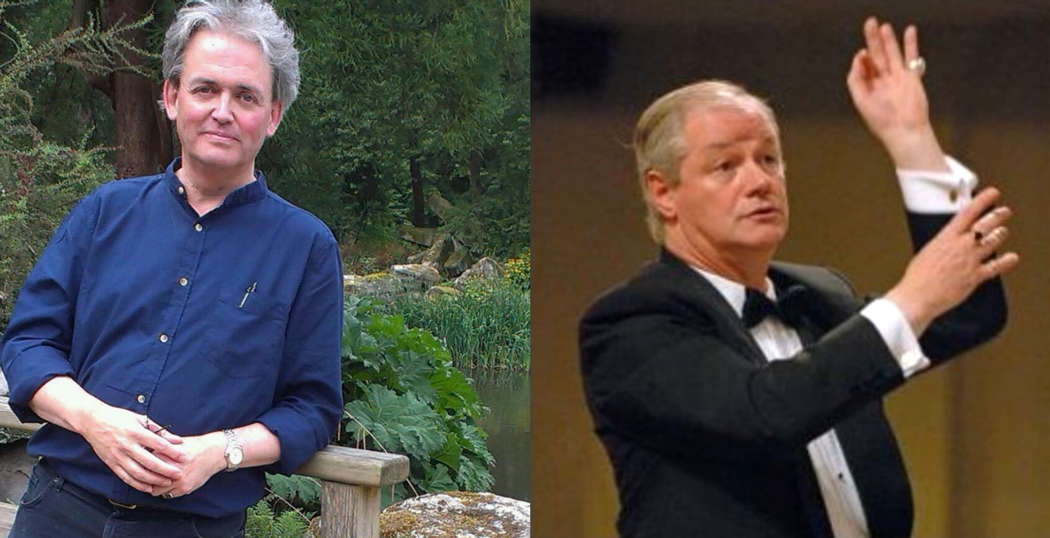
Two Three Choirs highlights. Francis Pott (left), whose specially commissioned full-length oratorio will be heard on Tuesday, and Ronald Corp, who is celebrated on Sunday
The overseeing of Evensong during the week (despite an occasional visiting, or nearby, choir) is largely managed by one of the three Cathedral Directors of Music. There is usually a feast. Who could not make a beeline for Stainer's Magnificat and Nunc Dimittis in B flat, or (Herbert) Brewer in D, which could almost be by Elgar (who was a close friend). Thomas Tomkins' Second Service, which was a favourite of my late choir director Bernard Rose (of course: he was Tomkins' editor for Musica Britannica). Or the pure, Jacobean responses of Richard Ayleward (1626-69), and Parry's 'Hear my words, ye people'?
One afternoon piano recital includes music by Coleridge-Taylor, now at last coming into fashion, Albeníz and - wait for it - the classical-early romantic era composer Hélène de Montgeroult (1764-1836). It's one of those rare concerts that include - from organist Jonathan Hope and his St Cecilia Singers - a mélange of sacred and especially secular music by significant names from the Eastern Orthodox tradition: the Ukrainians Boris Lyatoshinsky and Viktor Kosenko, the Russian-Ukrainian Dmitri Bortniansky, the modern day Polish composer Pavel Łukaszewski (born 1968), the Russian-born Sergei Bortkiewicz, and another, short-lived, Russian - Nikolai Kharito. It's a late night concert. What's so special is that most of these composers are known for their Orthodox church music. What we hear, for the first time, is a wealth of their secular pieces.
Mentioning Jonathan Hope (Partington's Assistant Director of Music) leads on to a particularly rich series of organ recitals, as usual showcasing young performers from the Royal College of Organists. In Cheltenham, Polina Sosnina, previously winner (in 2017) of the Brian Runnett Competition at St John's College, Cambridge (named after their magnificent Lancashire born 1960s organ scholar (1935-70), killed in a car crash on the way home from giving a recital in Westminster Abbey) brings César Franck's Second Chorale (the B minor), quite apart from Bach's sensational Passacaglia and Fugue in B minor.
In Cirencester François Cloete, organ scholar of Merton College, Oxford (and formerly of Hereford Cathedral), includes not just an Organ Sonata (No 5) by romantic era Gustav Merkel, a pupil of Schumann, but the amazing Choralfantasie 'Hallelujah' by Max Reger - a composer we could do with hearing more of at this festival, for several of his choral works (Psalm 100, for instance, or his magnificent and surely potentially popular series of orchestral variations - Mozart, Hiller) are up to the quality of his superb organ output.
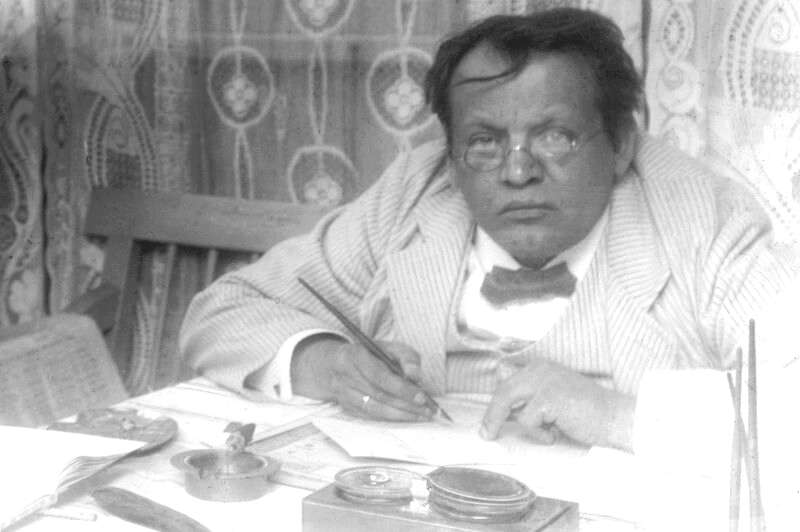
Max Reger at his workdesk. Born the same year as Rachmaninov (1873) he died in 1916 aged only forty-three - a huge loss to German and world music.
Photo © Repro MDR
Meanwhile back at home Miriam Reveley, organ scholar of St George's Chapel, Windsor, about to take up a similar role at Jesus College, Cambridge, and previously a girl chorister at Ely Cathedral, includes more Franck - his Prelude, Fugue and Variation, Léon Boëllmann's better-known but finally thunderous Suite Gothique, a Vierne Carillon and a slice of Percy Whitlock's Organ Sonata - surely another composer whose choral works deserve inclusion here.
Is the Baroque neglected? By no means: apart from the J S Bach included in the organ recitals above, there are three concerts which stand out a mile.
The first does indeed include Bach, but 'For Anna Magdalena' - a recital by the wondrous soprano Carolyn Sampson - turns out C P E Bach (twice), Couperin, Christian Petzold (like Merkel, Dresden, 1677-1733). Down in Cirencester, the vastly talented Warwick Cole introduces a wholly unknown work with his Corelli Orchestra and the Selene Quartet (all on period instruments): the setting of the Passion story (Die leidende und am Creuz sterbende liebe Jesu) by Gottfried Heinrich Stölzel (1690-1749), thus an almost direct contemporary of Bach and Handel. Strikingly and impressively, the whole work is rediscovered and edited by Cole himself.
And J S Bach comes into his own spectacularly, when Geraint Bowen again draws on the finesse of the Corelli Orchestra to conduct the three Cathedral choirs - they always feature alone, without large chorus, in one of the week's concerts, not always an evening - in a reading of Bach's St John Passion, a work he knows particularly well, having conducted it at Hereford several times.
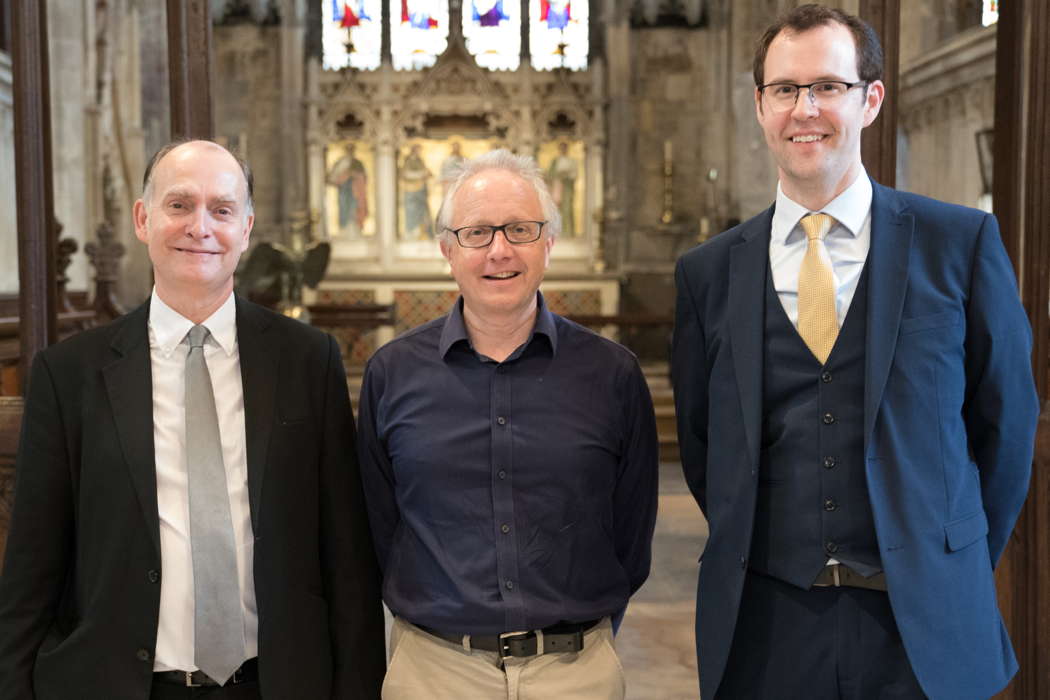
From left to right, the three musical directors of the Three Choirs Festival: Adrian Partington, Geraint Bowen and Samuel Hudson. Photo © 2019 Michael Whitefoot
Less ostentatious, more in a minor key, possibly more grieving, certainly more restrained then Bach's St Matthew, the performance's six soloists will include the splendid bass-baritone Matthew Brook, thank goodness a Three Choirs Festival regular, and above all the extraordinarily passionate and articulate James Gilchrist as the tenor Evangelist.
Adrian Partington is deeply embroiled with period performance. One of his special pleasures, he says, which gives him 'the greatest satisfaction and joy', is travelling around the UK and indeed parts of Europe performing with a celebrated baroque violinist - the Orchestra of the Age of Enlightenment's unfaultable former leader, Margaret Faultless. 'The intimacy, and the intensity, is quite different from managing a large choral society - thrilling though that be - or even a cathedral choir. Yet choral repertoire of the Renaissance, like Byrd, whom choirs and consorts are celebrating the anniversary of this year, give one', he says, 'such inspiration. Take his Short Service - it's an extraordinarily well crafted and beautiful piece of music.'
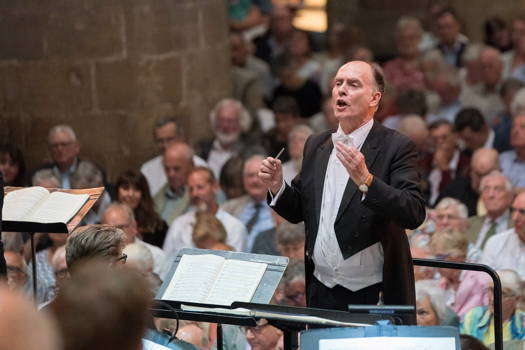
Adrian Partington. Photo © Michael Whitefoot
Influences? Instead of listing composers - there must surely be many into which he pours intensity and passion - Partington prefers delightfully to point out, 'I'm always influenced by the people around me, whether they are famous musicians or the humblest chorister. You learn from everybody. One influence was Richard Hickox, whose chorus master in Cardiff I was for eight years; Simon Rattle - an astonishing man; and Sakari Oramo, marvellously helpful. But the list is endless. Being out of cathedrals for quite a long period has helped shape my attitude to, and involvement with everything. It has, I hope, given me a fresh, different view of things.'
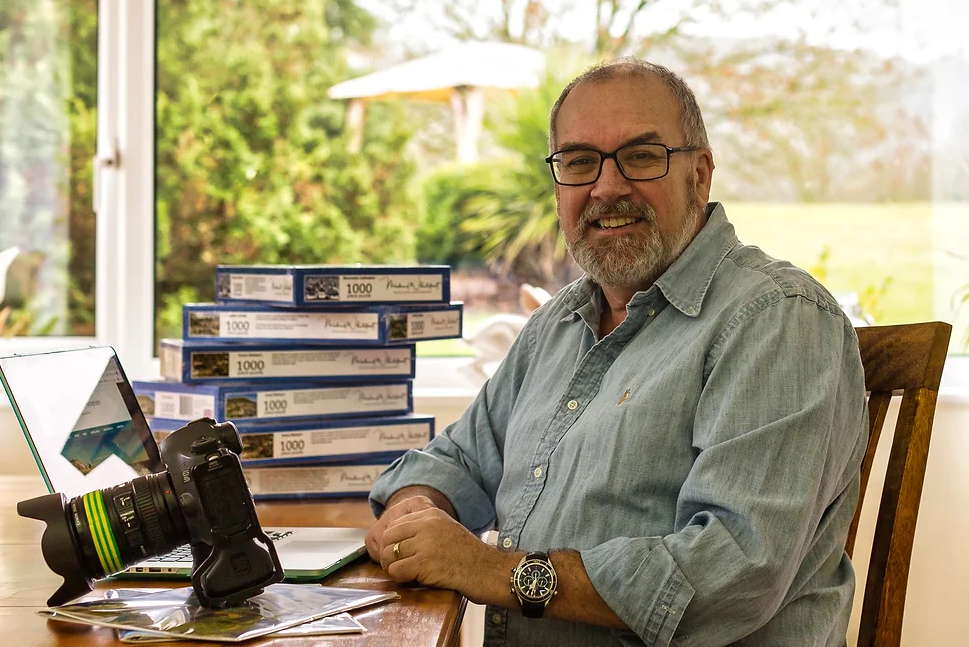
Michael Whitefoot, the fine photographer of many Three Choirs Festivals. An exhibition of his work is on show in the Chapter House at Worcester Cathedral during July 2023, and his new book, Postcards from Wales - 'Photographic highlights from a country of outstanding natural beauty' has just been published. Details at michaelwhitefoot.co.uk
There are lectures and talks galore littered around; one special meet-up will be that of the Sanders Society, founded by William Armiger in tribute to Gloucester's wonderful organist from 1967 to 2003, John Sanders (1935-2003) the twentieth anniversary of whose death (in December 2003) approaches. The speaker this time will be composer and former member of the King's Singers, Bob Chilcott.
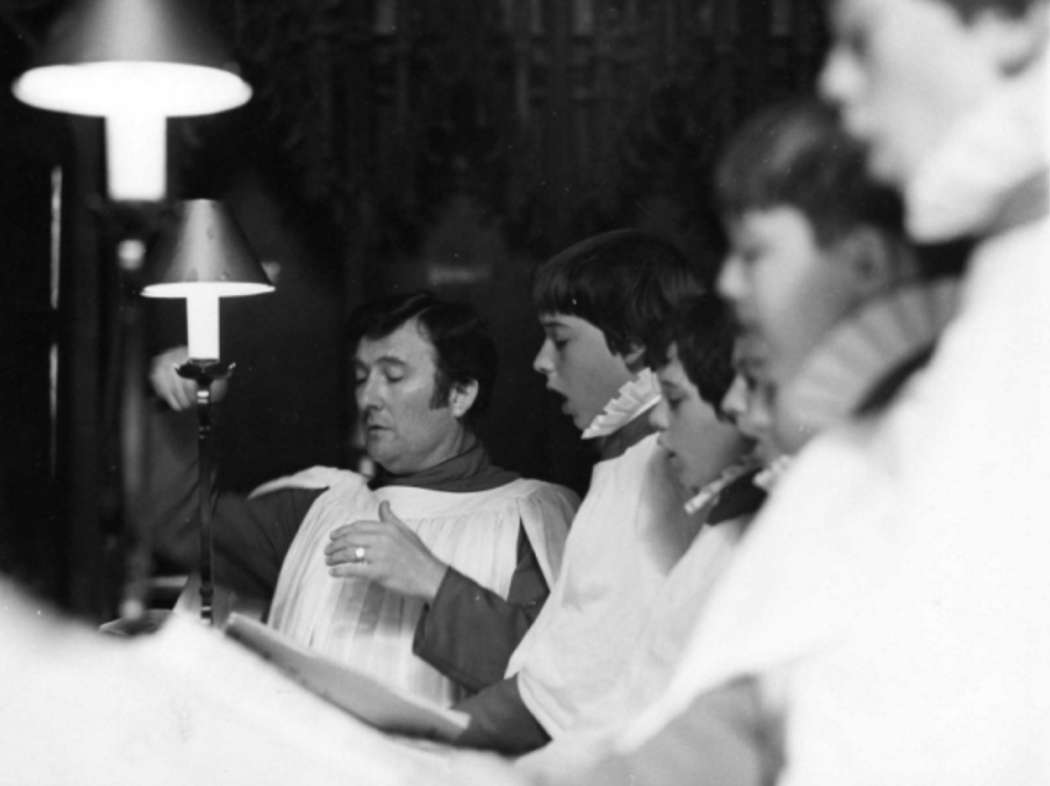
John Sanders with the choristers of Gloucester Cathedral. Photo courtesy of the Sanders Society, which runs an annual composition competition. Details at sanderssociety.org.uk
But remembering John Sanders is perhaps as moving a thing, or at least a tribute, as special as anything in 2023.
Copyright © 22 July 2023
Roderic Dunnett,
Coventry UK


